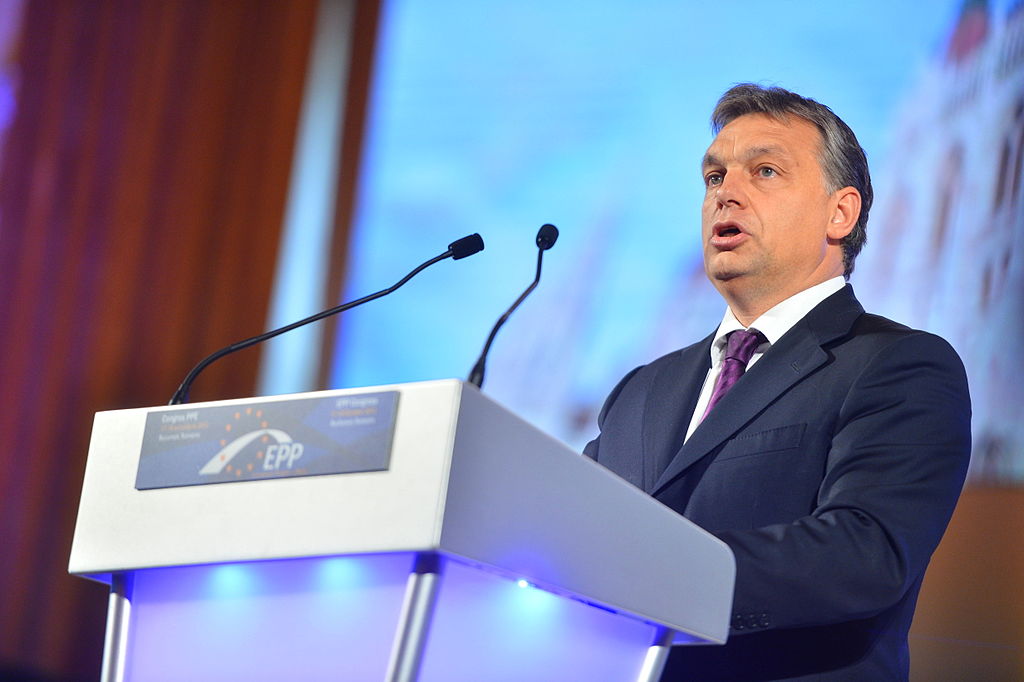Gender Ideology
Viktor Orban defends Christian civilization in fiery CPAC speech
On May 29, Hungarian Prime Minister Viktor Orban opened CPAC 2025 in Budapest with a triumphalist speech emphasizing the strength of the populist wave across the Western world. He pointed to Donald Trump’s victory; Irakli Kobakhidze’s victory in Georgia last February; Hrisztijan Mickoski’s election victory in North Macedonia last June; and Slovakia’s Prime Minister Robert Fico, who was shot five times in during an assassination attempt last May but survived to fight another day.
Orban was characteristically pugilistic, but unusually ebullient. Trump’s victory, he stated, has injected hope into European populist leaders across the continent, especially as so much of Europe seems in free fall. “The most vicious power struggle is in progress: they deny both God and man,” Orban stated. “[Marine] Le Pen has been disqualified from the French presidential race by a court ruling. Salvini has been dragged to court. The AfD is under national security surveillance. Patriots for Europe events are violently obstructed.”
In Europe today, Orban emphasized, conservatives are caught between the pincers of state power from above and street-level leftist violence from below. “Communist and leftist thugs attack those on the Right,” he noted. “JD Vance put it correctly: in Europe today, freedom is not being threatened from without, but is being attacked from within. And everyone can see that there is trouble. The whole structure is tottering and crumbling. It must change. Things cannot go on like this! And our opponents know it too.”
Europe, Orban told the crowd, faces a choice: A liberal plan, and a patriotic plan. “The liberal plan sees the old, cultural, Christian Europe as obsolete. They want to move beyond it. For decades they have been working to fabricate a new identity to replace Christianity and the nation. At first, I remember, they came with the promise of prosperity: ‘Let go of your traditions, and Europe will be a world of happy and unrestrained consumption.’ That did not work.”
The European elites, Orban said, moved on to other plans. “Then came the idea that Europe would be a continent of ‘inclusion,’” he reminded the audience. “And we got to the point where Belgium–Israel national football matches had to be played in Budapest instead of Brussels. And now, after Trump’s victory, here is another idea: Europe wants to be the bastion of the global liberal empire. After Washington, their new Mecca is Brussels. But the main problem with Brussels is not that it is dominated by progressive liberal bureaucrats.”
The patriotic plan—the Hungarian plan—is different. Hungary, stated Orban, rejects the Brussels plan “to centralize Europe under the pretext of war and “build a new economic model, a war economy model…Collective debt, central control, and a war chest.” Instead, Orban said, Hungary wants a different, four-point plan: Peace, sovereignty, freedom “in politics, freedom of thought, and opinion,” and taking “Europe back from the migrants.”
At the core of this plan is Christendom. “We want a Christian culture, schools standing on a national basis, and streets and neighborhoods without fear,” Orban declared. “We want to be proud of our nations. This is the patriotic plan.” A key part of that plan? “We need the shutting of the American liberal financial sluice gates.” If progressive political movements lose their big bag donors, Orban stated, then conservative Europeans will have a fighting chance to take back their continent. He concluded with a rousing battle cry: “Make Europe great again! Go Hungary, go Patriots! God save Hungary!”
Viktor Orban, it is worth noting, is not the sort of populist who nods at Christianity in order to summon the strength of Europe’s heritage on behalf of his political agenda or incur the power of nostalgia. Orban has consistently worked to create a government oriented towards strengthening the family; defended traditional marriage; and most recently, to the rage of Western progressives, banned “Pride” parades on the grounds that they promote sexual ideologies to children.
Many have asked: What would a political backlash to the Sexual Revolution look like? Viktor Orban’s Hungarian model is one fascinating answer to that question.









Ok, but he hasn’t actually ended abortion on demand in Hungary despite being in office for quite a while.